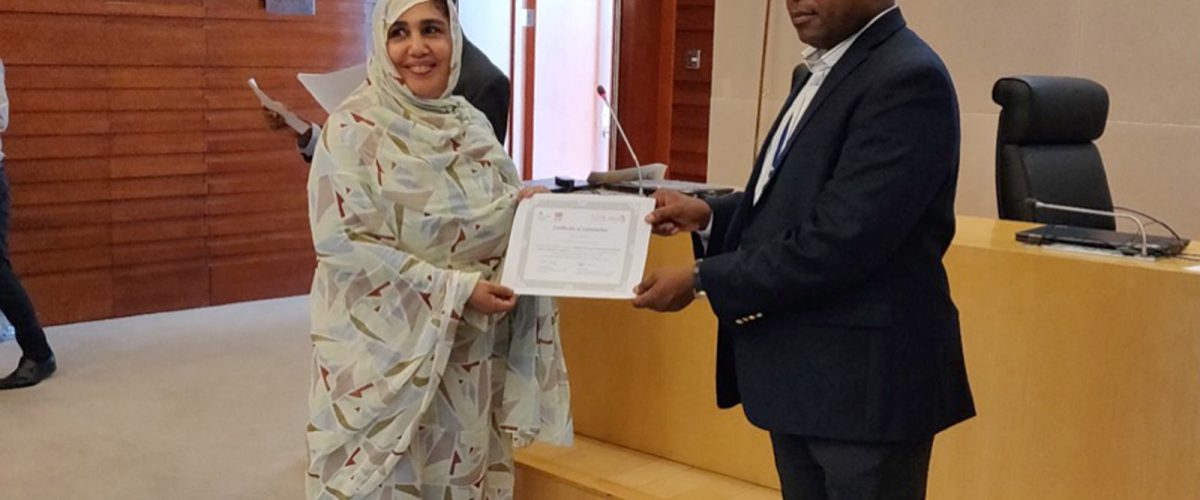The Africa CDC Institute for Workforce Development (IWD) was established in partnership with the Rollins School of Public Health at Emory University to strengthen public health workforce in Africa through training of public health professionals already working at National Public Health Institutes, Ministries of Health and other related institutes in African Union Member States. The courses are delivered online, in-person or through a combination of both channels, by a carefully selected faculty, using context-appropriate, culturally sensitive and technically instructive modules that are tailored to the needs of trainees and their Member States.
Training Courses for 2019
IWD is conducting the following four priority courses in 2019:
Transforming Public Health Surveillance
At least 30 new diseases have emerged in the last 20 years and the first line of defense against any emerging pathogen is its rapid detection for prevention, detection and response, therefore, public health professionals must have information about the parameters of disease occurrence to develop and maintain prevention and control programmes. Transforming Public Health Surveillance (TPHS) provides an overview of the history, purposes, activities, uses, elements, data sources, models, analyses, actions, reporting, evaluation, and ethical and legal issues in public health surveillance. It examines the four key movements: governance, collaborations, informatics and analytics. The course is designed for surveillance specialists, public health workers and staff of Public Health Emergency Operations Centres (PHEOC) of African Union Member States. The course duration is approximately one month and is delivered online.
Introduction to Antimicrobial Resistance
Antimicrobial resistance (AMR) is recognized as a major global health challenge that requires urgent action. It is estimated that 700,000 deaths occur annually due to AMR and if the trend continues, it could cause over 10 million deaths per year and over US$ 100 trillion economic loss globally by 2050. The main factors accelerating AMR are the growing use and misuse of antimicrobials in human and animals and contamination in the food chain and the environment. Though there is limited data on AMR systematic surveillance, studies suggest that consequences of AMR are likely to be more serious in Africa due to weak health system and the spread of resistance promoted by poor infection control, limited diagnostics, dual problem of excess counterfeit drugs and lack of access to quality medicines.
This course will equip policy decision-makers and public health managers with the evidence and public health principles and approaches required for standard practices to contain AMR at national and regional levels. It explores the history of antibiotics, the impact of misuse on humans, animals and the environment, and the mechanism of resistance. It describes policies and regulations to guide actions in delaying emergence of AMR, limiting transmission and mitigating harm among patients infected with AMR organisms.It highlights strategies and lessons from the epidemiology and burden of AMR as well as global and regional responses to improve surveillance and data sharing, building on the critical importance of the one health approach. It is targeted at policy decision-makers, public health managers, clinical and laboratory practitioners, and civil society groups and aligns to the guidelines in the Africa CDC strategic framework for AMR. The duration for the first part of the course is approximately six weeks and it’s delivered online.
Proposal Writing
The proposal writing course provides guidance on how participants can transform their ideas into strong grant proposals, and search grant markets for potential funders. It covers the mechanics of grant writing, including the scientific and administrative components, using didactic and applied training to build competency in developing proposals for public health programmes or research projects. It equips trainees with the skills to identify a suitable funding opportunity, distinguish between different types of funding mechanisms and funding agencies, to fit their ideas to the funding agency’s guidelines, and to navigate the grant review process. The primary target audience for the course includes public health professionals within Africa CDC, NPHIs and the Ministries of Health, and members of academic institutions and partner agencies who are involved in proposal development. The course is delivered through seven weeks of online work and a three-day face-to-face meeting.
Leadership and Management
The interconnectedness of the global health village requires well-rounded health leaders and managers equipped with the right mix of competencies, skills and behaviours needed to build capacity for early warning, risk reduction and management of national and global public health threats. This course is designed to strengthen the leadership and management capacity of NPHIs executives and managers so they can better respond to the changing national and global health environment. It combines theory with practice through lectures, additional reading of relevant literature, written assignments, group exercises and case studies as well as experience-sharing by individuals who are successfully leading or have led public health agencies in developing countries. The course will consist of individual and team exercises and tests and will be delivered online for approximately four weeks.
Further Information
For more information on IWD, please visit: https://africacdc.org/about-us/

